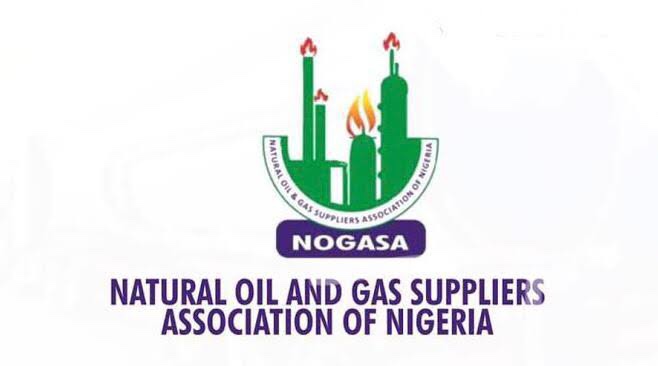The Natural Oil and Gas Suppliers Association of Nigeria (NOGASA) on Tuesday urged the Nigerian government to put an end to the receipt of payments for all petroleum products in US dollars.
This, the association said, is part of measures to address the continued rise in prices of petroleum products in the country.
Benneth Korie, the president of NOGASA, disclosed this at a press briefing in Abuja on Tuesday.
He explained that most Nigerians have adopted dollars as their main currency of exchange and trading while noting that the rise in exchange rate was a major challenge for the operation of modular refineries in the country.
“Nobody is talking about diesel again, it is now dollars. The problem we have, we trade and we recognise others without recognising our own. There is no reason for us to be trading with dollars. The problem we are facing today is as a result of the dollars. We want to tell Nigerians we, marketers, are going through as a result of dollars and what diesel is doing to us,” Mr Korie said.
He expressed worry about requests by the Nigerian Maritime Administration and Safety Agency (NIMASA) and Nigerian Port Authority (NPA) that dollar payments be made for services rendered in Nigeria.
“Stop payments for all petroleum products in dollars. Allow the people to pay in naira, so they should remove this dollar. They should stop collecting dollars from people for any service. If you want dollars to buy whatever you need, go to the Central Bank of Nigeria (CBN) and get dollars, this should not be a reason for not collecting naira from us.
“What is this problem, if you buy Premium Motor Spirit (PMS) at N 620 for example and you use diesel of N1,700 per litre because it is like the diesel and dollar are going up at the same time, which is wrong.

“So the answer to this is for the government to come out and tell Nigerians, this is how much the dollar is, not this window forex rate we hear on TV, let the government…tell us the rate, not the black market.
“If the government likes it, let them take the rate of black market rate. I know our budget this year was benchmarked at N750/$, so if the government can maintain it at N750/$ heaven will not fall, inflow or no inflow.
“It is not the first time we are seeing a price at N400 and they are selling for N800, so let’s go back and try it, because if we allow this to continue, the dollar may get to what we cannot handle, now all our food will be sold at dollar rate if care is not taken, so let us go back to N750 as it was stated in the budget so that we work with N750. So that the crude oil that will be sold to the refineries will be sold at 750/$ convert it and we will pay in naira,” he added.
Mr Korie stressed the need for standard road infrastructure across the country.
“Another thing that I will suggest is that we concentrate on the roads to reduce the rate at which we maintain our trucks in Nigeria. We are talking about the dollars, you will agree with me that 70 per cent of our dollars go to spare parts. And these spare parts are vehicle spare parts.
“If you fix the roads and the roads are good, vehicles will spend like 10 years without the need for spare parts, so the people importing spare parts will not have a need for dollars, but when we are busy bringing in different types of vehicles into the country that dollar will still go. So we will need to fix the roads, and this will also create jobs for our youths, the economy will be moving, construction of roads is very important,” he said.
He added that the difficulties in getting bank loans have pushed over 70 per cent of oil traders out of business.
“So it is better that the government look into this issue before it gets out of hand, because many of them cannot talk but they come to us to complain, so we just want to tell Nigeria government that if something is not done from now till the end of this month, it will affect the marketers.
“So if care is not taken, we also will withdraw our service because there is no way out, everybody is struggling to get money from the bank. From the 1st of next month, we will withdraw services if nothing is done,” he said.
By Olaitan Ibrahim Akano